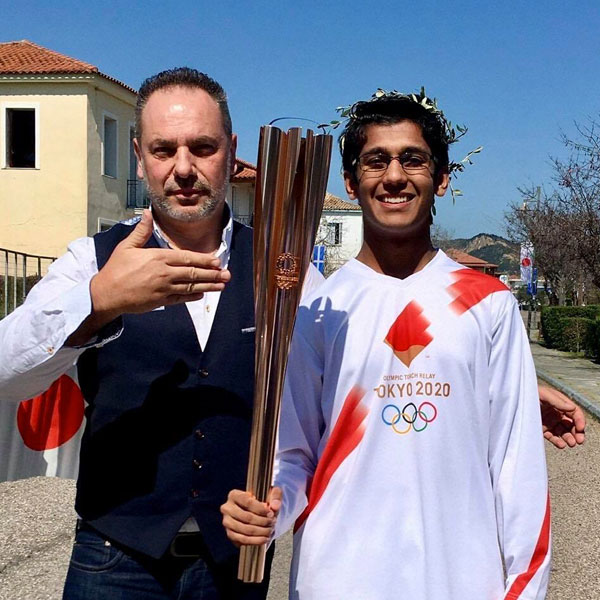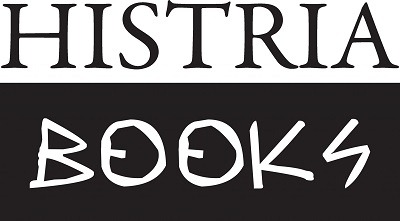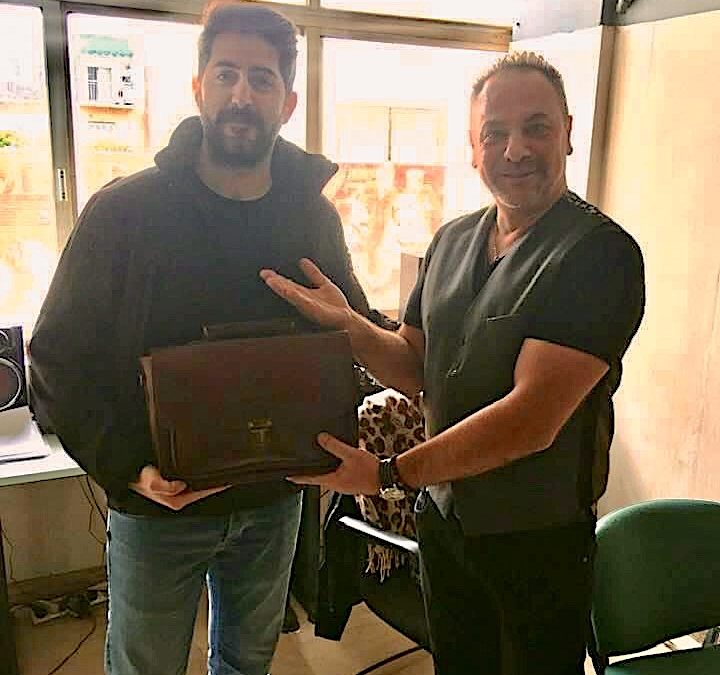After working on the Olympia novel (and film) project for a number of years, Michael and I decided that to properly complete the work a trip to Greece was required to inject into the manuscript a real sense of atmospheric authenticity. As Michael was consumed with his day job as a senior anthropologist and I had the luxury of more time by dint of living with my disability (a spinal injury), I took the plunge and winged it to Europe in early 2020. Suitably fortified with heat-patches, nice-smelling unguents and plenty of pain-killers, I made the grueling 22 hour flight from Melbourne (via Hong Kong and then London, where I caught up with an Italian uncle and his family living there) and finally arrived in Athens. My arrival in Hellas coincided with global news breaking of the COVID-19 pestilence. Having endured so much over the centuries – including the great plague of classical era Athens, which robbed the city of one third of its residents – the Greeks were initially indifferent to this new Age of Anxiety.
I took up residence at a spectacular Athenian writers’ retreat that turned out to be owned by one of Greece’s most eminent families. The worldly sisters, Matina and Alkistis Agio – the former possessing very fine curatorial skills, while the latter held a PhD in humanistic sciences – became close ‘Socratic friends’ and we spent many an occasion eating, drinking and debating in true Mediterranean style. Both sisters were heavily involved in the Stoic philosophy revival and Alkistis hosted such forums within the spacious residence – a huge boon for a writer seeking inspiration. Each day I also ventured out to an interesting Athenian archaeological site, museum or gallery for the stimulation I felt I needed to churn out my best writing. These initiatives proved productive – five key chapters were completed at first draft level within six weeks.
On the Friday afternoon of completion – before I hired a car to venture across the country for two further weeks – I slid into my favourite watering hole for a few celebratory ouzos. With characteristic Hellenic generosity, the locals plied me with many a complimentary drink and I staggered out the worse for wear several hours later. Somewhere along the line, as I discovered to my horror when I awoke the next morning, I had been robbed of my briefcase. It contained my laptop with all of the fresh manuscript writing.
I scrambled back to the taverna to look over its security camera footage. Nothing. Recalling that my iPhone was digitally connected to the laptop contained within the briefcase, via the ‘Find My’ app’, I raced to the hardcore police station (here think of the movie Midnight Express), befriended a very diligent, bilingual super-cop I dubbed ‘Serpico’, explained to him how the tracking technology operated and – working in concert – within 48 hours we had located both the laptop / briefcase and the thief. He was nabbed outside a computer repair store, where he had been asking to have the security screen cracked open for him. The Athenian officers were very firm with him and, over a remarkably short period of time, they also managed to extract all the other missing items from the briefcase.
Drunk on success (and, later, via the fine wines I gave them by way of gratitude), ‘Serpico’ and his buddies proclaimed that this was first time in the lengthy history of Athens that a laptop had been recovered. And in record time. The new manuscript chapters were saved. [The photo at the top of this blog is of ‘Serpico’ handing back to me the well-travelled briefcase.]
Departing Athens the following day I explored the extraordinary clifftop monasteries of Meteora (where some of the Bond movie, For Your Eyes Only, was filmed), shot past a town that left me a bit gob-smacked – called ‘Martino’ – and then paused wistfully at the site of ancient Thermopylae, where Western history’s most heroic battle took place. I arrived two days later at Greece’s so-called second city, Thessaloniki, where I spent more quality time with family, my two Greek-Australian step uncles and their extended clan. Departing these festivities, I shot across northern Greece – pausing at King Phillip’s tomb, Alexander the Great’s former capital and then Mount Olympus, to thereby hail the ancient Greek gods – and arrived through the top of the Peloponnese at Olympia on March 11. The following day was the scheduled official torch-lighting ceremony for the 2020 (now 2021) Tokyo Games.
As I parked myself at a lovely al fresco café (owned, quite wonderfully, by Greek-Australians from my home city of Melbourne) on the beautifully decorated main street of Olympia, the disturbing news broke that the pandemic had now forced the closure of the torch-lighting ceremony to the public. I was, to put it mildly, crushed.
But the café owners, having recognized my Australian accent, introduced me to a gentlemen sitting only a table away (Mr Stavros Potouridis), who turned out to be not only a manager of Greece’s Panathenaic Stadium but licensed by the IOC to take photos of the torch-lighting ceremony. In the spirit of Greek hospitality, friendship and giving (philoxenia) he immediately offered to share with me some of the photos – as long as they were duly credited – as he was as disappointed as so many others that thousands of us would not be able to physically attend this special ceremony. As my Greek-language skills are unfortunately not good, I reciprocated in the universal language (of alcohol) by ordering a couple of fine Greek beers to express my gratitude.
We drank and chatted to a few other travellers who had also made the pilgrimage to Olympia to witness the event but were now, like me, sidelined by the cautionary pandemic restrictions. As we conversed, we were approached by one of Stavros’ friends, the marathon runner Kostas Hatzis (renowned throughout Europe for always completing his runs in full traditional Greek national costume, while waving his Olympic-style flag to remind spectators that the marathon is as Greek as it is Olympic), and I shared a few laughs with this very genial and humble ‘icon’. He invited me to dinner that night in the same café we were lunching at and as I joined him and Stavros, the Japanese Olympian, Minori Hayakari, also joined our table, to my great pleasure. It was quite a dinner.
Minori and Stavros departed after dinner to get some much-needed rest, but Kostas invited me to another gathering that was being held in the function room of a local hotel. Arriving there I was soon introduced to some 50 or so enthusiastic international travellers, all of whom had a vested interest in sport, the torch-lighting ceremony and the Olympics. I took particular pleasure in chatting to the U.S. YCA Youth Ambassador, Mr Atharva Vispute, and his very proud family. I also became acquainted with Assoc. Prof. Alexis Lyras (who, seconded from Georgetown University to the University of Tsukuba in Tokyo, was travelling with a troupe of sports studies students from across the globe), who has subsequently become a firm friend and now penned the Foreword to the Olympia novel that Michael and I have since completed.
The following afternoon I had the extraordinary pleasure of getting ‘up close and personal’ with the torch-lighting relay after the sun’s rays had ignited the Greek torch maidens’ ‘genesis flame’, then jogging a little alongside Atharva who was also kind enough to pose for a photo with me. It is that very same photo you will see on the rear of the Olympia novel cover, which is also reproduced below on this blog piece, as well as cropping up in various places on this website. After this opportunity of a lifetime, I took my stiff and sore bones back to my favourite Olympian café, ordered a Mythos beer and flipped open my ‘lucky’ laptop. There, at the head of a string of emails, was a publishing offer for Olympia. I whooped with joy, to the laughter of quite a few, and hastened to contact my co-author Michael, who was nearly as excited as I. I couldn’t help but blurt out that I thought I was having the best day of my life.
The following day also proved memorable, as I witnessed the actor Gerard Butler brandishing the Olympic torch in the streets of Sparta before a statue of King Leonidas – the role he played in the movie 300 – to mark the 2,500 year anniversary of the Battle of Thermopylae, but that is a story for another time and another blog piece…



The article is really excellent. Every time I read it, I get information again.
The best article I’ve read in a long time….
Wow, amazing weblog structure! How lengthy have you been blogging for?
you make blogging glance easy. The overall look of your web site is fantastic, let alone the content!
Wow, this piece of writing is good, my younger sister is analyzing such things, thus I am going to tell her.
Many thanks for your support and appreciation.
Thank you. I will consider your offer.
Thank you. The best way to approach a blog, as I’m discovering, is write only about what you love or topics you are inspired by and do plenty of quality research. Best of luck.
Many thanks for your kind words.
Thank you. Go with WordPress – which is very well supported – but get a quality programmer and designer to assist you.
Amazing blog! Do you have any helpful hints for aspiring writers?
I’m hoping to start my own blog soon but I’m a little
lost on everything. Would you advise starting with a free platform like WordPress
or go for a paid option? There are so many options out there that I’m totally overwhelmed ..
Any tips? Thanks!
Thanks for your personal marvelous posting! I truly enjoyed reading
it, you could be a great author. I will always bookmark your blog and will come back
in the future. I want to encourage you continue your great work, have
a nice day!
Hmm it appears like your website ate my first comment
(it was extremely long) so I guess I’ll just sum it up what I wrote and say, I’m
thoroughly enjoying your blog. I as well am an aspiring blog
writer but I’m still new to everything. Do you have any suggestions for beginner blog
writers? I’d really appreciate it.
My brother recommended I might like this web site. He was entirely right.
This post actually made my day. You can not imagine simply how
much time I had spent for this info! Thanks!
Please let me know if you’re looking for a article writer for your site.
You have some really good articles and I think I would be a good asset.
If you ever want to take some of the load off, I’d really
like to write some articles for your blog in exchange for a link back to mine.
Please shoot me an email if interested. Regards!
Woah! I’m really loving the template/theme of this blog.
It’s simple, yet effective. A lot of times it’s very difficult to get that “perfect balance” between user friendliness and visual appeal.
I must say you’ve done a fantastic job with this. Additionally,
the blog loads extremely quick for me on Opera. Outstanding Blog!
Hi, I do think your site could possibly be having
internet browser compatibility problems. When I look at your website
in Safari, it looks fine however, if opening in I.E.,
it’s got some overlapping issues. I simply wanted to give
you a quick heads up! Apart from that, great website!
This paragraph provides clear idea in support of the new
visitors of blogging, that actually how to do blogging
and site-building.
May I simply just say what a relief to uncover someone that really understands what they’re discussing on the web.
You actually realize how to bring a problem to light and make
it important. A lot more people must look at this and understand this side of the
story. It’s surprising you are not more popular given that you most certainly possess the
gift.
Hey there! This is kind of off topic but I need
some help from an established blog. Is it difficult to set up your own blog?
I’m not very techincal but I can figure things out pretty fast.
I’m thinking about setting up my own but I’m not sure where to
start. Do you have any points or suggestions? With thanks
It’s appropriate time to make some plans for the future and
it is time to be happy. I have learn this publish and if I may just I want to suggest you
few fascinating issues or suggestions. Perhaps you
can write subsequent articles regarding this article.
I desire to read more issues about it!
I’m now not certain where you are getting your info, however great topic.
I needs to spend a while finding out more or understanding more.
Thank you for wonderful information I was in search of this information for my mission.
There’s definately a lot to learn about this subject.
I love all the points you made.
Thank you for this beautiful article. It’s really a good article
My relatives every time say that I am wasting my time here at net, however I
know I am getting know-how all the time by reading thes
good articles.
Greetings! I know this is somewhat off topic but I was wondering if you knew
where I could locate a captcha plugin for my comment form?
I’m using the same blog platform as yours and I’m having trouble finding
one? Thanks a lot.!
Thanks for the feedback. And, yes, the website contains a contacts page.
Does your blog have a contact page? I’m having trouble locating
it but, I’d like to shoot you an e-mail. I’ve got some recommendations
for your blog you might be interested in hearing. Either way, great blog
and I look forward to seeing it develop over time.
Good site you’ve got here..
It’s difficult to find good quality writing
like yours nowadays. I really appreciate individuals
like you! Take care!!
Nice articles! Favorite add and blog love.
I for all time emailed this website post page to all my
associates, because if like to read it afterward my contacts will too.
Have you ever thought about including a little bit more than just
your articles? I mean, what you say is important and all.
Nevertheless think of if you added some great
graphics or video clips to give your posts more, “pop”!
Your content is excellent but with pics and video clips, this
site could definitely be one of the greatest in its field.
Excellent blog!
It is a very valuable article. I have added your content to my favorites, I would like to say that I will often visit your new posts 🙂
Terrific work! That is the type of information that should be shared across
the net. Shame on the seek engines for not positioning this submit higher!
Come on over and seek advice from my site . Thank you =)
Thank you for another informative site. Where else could
I am getting that kind of info written in such an ideal way?
I’ve a undertaking that I am just now working on, and I’ve been at the look out for such information.
I loved the blog post! I will surely add it to my favorites and visit your post often!
I will immediately clutch your rss feed as I can not in finding your e-mail subscription hyperlink or e-newsletter service.
Do you have any? Kindly allow me realize so that I could subscribe.
Thanks.
Thank you. And thanks for the heads-up on the RSS and subscribing issues. I’ll notify the site designer and get it sorted out.
Oh my goodness! Incredible article dude! Thanks, However I
am going through problems with your RSS. I don’t understand
why I am unable to subscribe to it. Is there anybody having the same RSS problems?
Anyone who knows the solution can you kindly respond? Thanx!!
Thank you for the heads-up. I’ll get onto our designer / programmer.
Thanks. Sure. Send me some details and let’s see what we can cook up.
I am grateful to you for this beautiful content. I have included the content in my favorites list and will always wait for your new blog posts.
We’re glad it may have assisted you in some small way, Monique.
Glad you enjoyed it, Kalila.
I want to show appreciation to this writer for bailing me out of this type of predicament. Monique Dalis Tammie
Pretty! This was an incredibly wonderful article. Many thanks for supplying this information. Kalila Rolland Barcroft
Thank you. We’re slowly gearing up for the book’s release and have posted a few blogs in advance of July 21; more will be added soon. I’ll take a look at your site.
Great. Thanks for the feedback.
This paragraph is really a good one it assists new web viewers, who are wishing in favor of blogging. Ailis Bond Venice
After looking at a number of the articles on your website, I truly like your way of blogging. I saved it to my bookmark webpage list and will be checking back soon. Please check out my website as well and tell me how you feel. Vere Harwilll Kiyoshi
My spouse and I stumbled over here from a different website and thought I might as well check things out. I like what I see so i am just following you. Look forward to checking out your web page repeatedly. Gilemette Vassili Ahearn
Looking forward to reading more. Great article. Thanks Again. Willamina Haslett Budge